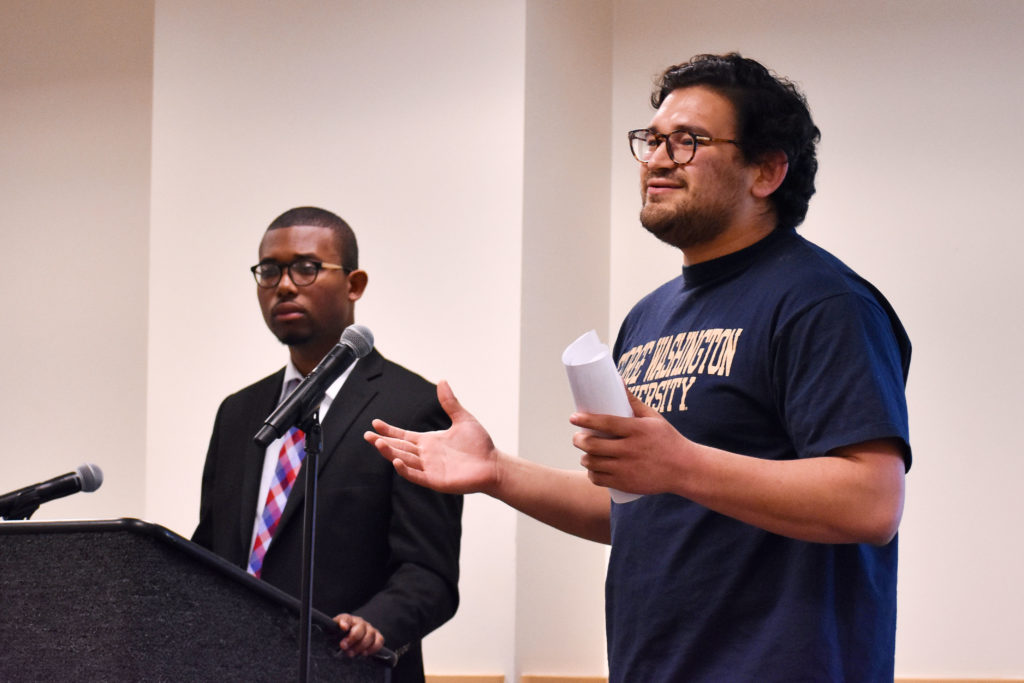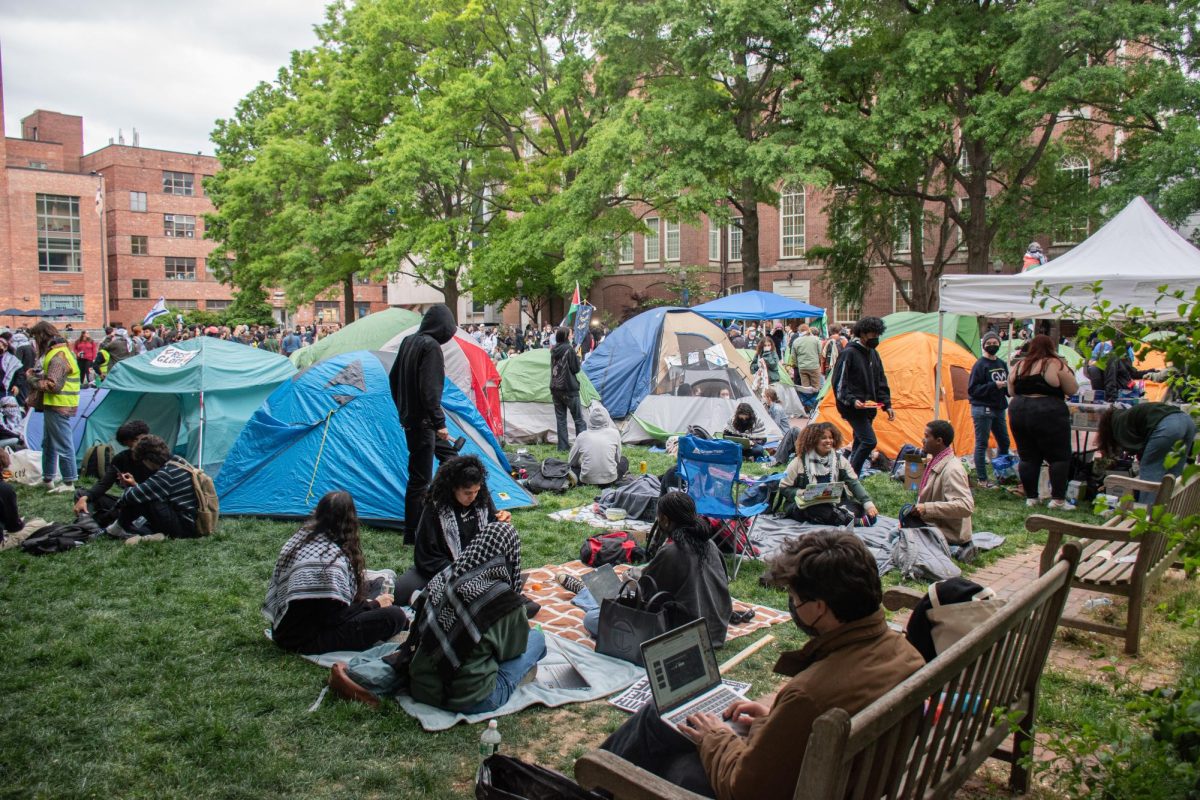Newly appointed Student Court judges are pushing to refresh court governing documents that have been collecting dust since 2012.
The Student Court follows governing documents that mandate yearly reviews to court bylaws and procedures, but the documents have not been updated since September 2012. Incoming judges appointed last Monday said they are pushing to update the documents to reduce ambiguity about the court’s power and improve how the court selects and hears cases.
“Times have changed since 2012,” junior Ian Haimowitz, an incoming Student Court judge and the current SA Senate chief of staff, said. “Even minor things can mean such a significant difference, and I think it’s important that we thoroughly go through every bylaw.”
A majority of the five court judges must approve edits to the procedures, according to current Student Court bylaws. Haimowitz said he plans to edit the documents over the summer and present the updated bylaws to other judges in the fall for approval.
Haimowitz said revising the Student Court’s documents may have “slipped through” the court’s agenda for nearly seven years because the court is often “forgotten” by the student body. The last three cases the Student Court heard occurred in 2016, 2013 and 2009.
He said Student Court judges should attend more SA events and hold information sessions to grow the court’s presence on campus. Haimowitz said the student body can keep an eye on the court’s actions during cases and ensure that lengthy periods of time do not elapse between bylaw updates if they are aware of the court’s existence.
“If we have a lens on the Student Court, we won’t have this bylaw issue,” Haimowitz said.
He said he is unsure what specific edits he will make to the bylaws, but the “whole document” must be updated, especially to clear up any misleading language. Haimowitz said he is studying student court bylaws at other schools – like Purdue and American universities – to gauge how other functioning student courts are governed before changing GW’s documents.
“They have a very comprehensive set of student court bylaws, and just seeing what have they done and looking around other universities similar to GW might be able to give aid in what our bylaws should look like,” Haimowitz said.
Darryl Jennings, the chief judge of the Student Court, and Kevin Zhang, a Student Court judge, declined to comment. Student Court judges Natalie Ioele, Wayne Arminavage and Sarayu Iyer did not return multiple requests for comment.
Members of the SA said the Student Court bylaws should be updated to specify the amount of time the court should spend on a case and refine language about how much time defendants are given to reply to a judge’s questions before the court decides to hear the case.
Student Court bylaws currently state that after a majority of judges approve new bylaws, the chief judge must submit the documents to the acting SA president.
SA President Ashley Le said the Student Court has not presented any changes to the bylaws for her approval this academic year. Le said since the requirement to review the bylaws and procedures every year is already mandated in the documents themselves, justices must “hold themselves accountable” for following their own rules.
“I don’t think that not having updated bylaws or procedures would drastically impact the function of a student court, rather I think it sends a message that we have been careless in making sure that a branch of the student government and a tool that the students can have is well taken care of,” Le said.
Le said she has “no jurisdiction” over the Student Court, making it difficult to supervise the court’s functions and uphold its bylaws.
“There is no avenue where other branches of the Student Association can hold them accountable,” Le said. “Those inactions sometimes may go unnoticed.”
Le said she hopes her approved Student Court nominees, Haimowitz and second-year law student Britt Lewis, will mobilize other justices to approve bylaw edits and campaign to increase the Student Court’s visibility among the student body.
“They will be able to commit themselves next year into making the court better by updating the bylaws, procedures and the way that it appears to students,” she said.
Samantha Paralikas, the SA vice president for judicial and legislative affairs, said bylaws governing the amount of time the court has to reply to expedited lawsuits or how long a plaintiff can wait before responding to questions from the court are “vague” and grant the Student Court “a lot of power.”
“I don’t think they ever really got to see how the procedures play out,” she said. “On paper, they look pretty fine but now in practice this past year, I had to file a lawsuit – there is currently a lawsuit against the SA – and I got to experience some of the procedures in practice and that is where I have some concerns.”





